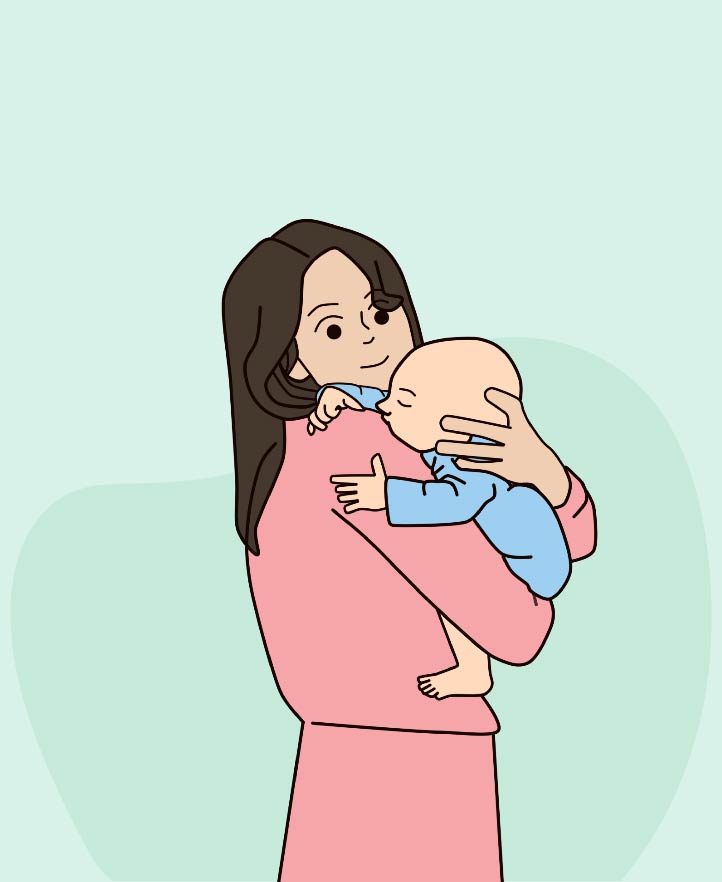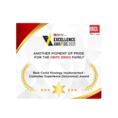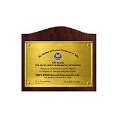

Gripe Water for Babies
Gripe water is a liquid supplement commonly given to babies to help rellieve discomfort from colic, gas, hiccups, and other stomach issues. It has been used for many years and is often marketed as a natural remedy. But is gripe water safe for babies? If yes, then how should it be used? And are there any risks involved?
This article answers all your questions to help you feel more confident about caring for your baby. Read on to know more.
What Is Gripe Water?
Gripe water is a herbal liquid supplement that has been used for many years to help ease tummy troubles in babies. It typically contains a blend of herbs and natural ingredients. Common ones include:
| Ingredient | Purpose |
|---|---|
| Fennel | Eases gas and bloating |
| Ginger | Helps with digestion |
| Chamomile | Soothing, may help calm the baby |
| Lemon balm | Natural calming effect |
| Sodium Bicarbonate | Neutralizes stomach acid (used in some formulations) |
Potential Benefits
Gripe water is often given to babies who are:
• Gassy or bloated
• Crying due to colic
• Struggling with hiccups
• Teething and feeling fussy
• Experiencing mild indigestion
Is Gripe Water Safe?
Gripe water is considered a herbal dietary supplement, not a medicine. It can be safe for babies, but it depends on the brand, ingredients, and your baby’s age and health. This means it can be sold without the Food and Drug Administration (FDA) reviewing or approving it first. As a result, some products may contain ingredients that aren’t clearly listed or haven’t been properly tested for safety.
A) Gripe water is considered safe when-
• Alcohol-free
• Sugar-free
• No artifical preservativies or colouring
• Given in the correct dose and labeled safe for infants
• Given to babies who are atleast 1 month old (unless advised otherwise by a pediatrician)
B) Gripe water may not be safe when-
• Baby is under 1 month old because of a immature digestive system
• Contains alcohol or sugar
• Includes sodium bicarbonate
• Baby has allergy to herbs like fennel or chamomile
How Is It Given?
Before giving your baby gripe water, the first and most important step is to talk to your paediatrician. Every baby is different, and your doctor can tell you whether gripe water is safe and suitable for your child.
If your doctor says it’s okay to use, the next step is to carefully read the instructions on the product label. This will guide you on the correct gripe water for newborns dosage and how often you can give it. Usually, it is given orally using a dropper or syringe. It’s usually best to give gripe water on its own, not mixed with breast milk, formula or any other liquid. Most babies don’t mind the taste, and many actually seem to like it.
Gripe Water Side Effects
Some babies may have an allergic reaction to one or more of the ingredients. Signs of an allergy can look different from baby to baby, but common symptoms include:
• Hives or rashes
• Watery eyes
• Swelling of the lips or tongue
• Vomiting
• Itching
• Changes in breathing
• Excessive sleepiness or irritability
If you notice any of these symptoms, stop using the gripe water right away and call your doctor. Allergic reactions can happen even with small amounts, so it’s best not to ignore the warning signs.
What Are Other Solutions for Colic?
Other than gripe water for babies, here are some solutions worth trying:
• If you are breastfeeding, try avoiding foods like dairy, caffeine or spicy dishes that might upset your baby’s tummy.
• If you are using a formula, talk to your doctor about trying a gentler one.
• Burp your baby more often during feeds to help release trapped gas.
• Use bottles that are designed to reduce air intake.
• Swaddle your baby to help them feel snug and secure.
• Hold your baby across your chest or lap to apply light pressure to their tummy.
• Gently rub their belly in circular motions to help with gas.
• Walk around with your baby or rock them gently.
• A short ride in the stroller or car can also be soothing.
• Play soft music or turn on white noise to help calm them.
• If they seem overstimulated, try dimming the lights and keeping things quiet.
Conclusion
Gripe water can be safe if used correctly and under your pediatrician’s guidance. Always check the ingredients and brand quality before giving it to your baby.
One of the important components of our overall wellness is also being financially secured. Healthcare emergencies can happen any time, but a good health insurance policy can protect you from such uncertain situations. To know more about Wellness and other health related tips, visit the wellness corner.
Sources: healthline.com, webmd.com, fortishealthcare.com, medicalnewstoday.com, healthychildren.org
Disclaimer: This blog provides general information and discussions about health and related subjects. The information and other content provided in this blog, website or any linked materials are not intended and should not be considered or used as a substitute for medical advice, diagnosis or treatment. Kindly contact your doctor before starting a new medicine or health regime.
Related Articles
Manage Fever in Babies Naturally
Sensory booster activities for kids
Published on July 8, 2025















 Health Insurance
Health Insurance  Travel Insurance
Travel Insurance  Car Insurance
Car Insurance  Cyber Insurance
Cyber Insurance  Critical Illness Insurance
Critical Illness Insurance
 Pet Insurance
Pet Insurance
 Bike/Two Wheeler Insurance
Bike/Two Wheeler Insurance  Home Insurance
Home Insurance  Third Party Vehicle Ins.
Third Party Vehicle Ins.  Tractor Insurance
Tractor Insurance  Goods Carrying Vehicle Ins.
Goods Carrying Vehicle Ins.  Passenger Carrying Vehicle Ins.
Passenger Carrying Vehicle Ins.  Compulsory Personal Accident Insurance
Compulsory Personal Accident Insurance  Travel Insurance
Travel Insurance  Rural
Rural